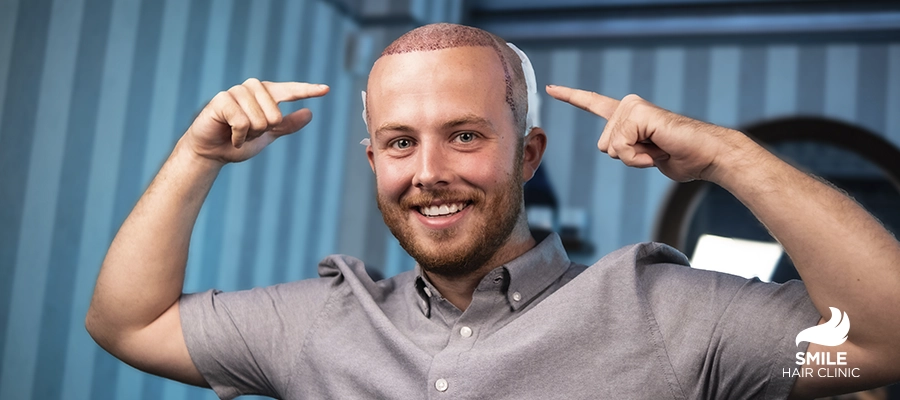Intersection of Hair Transplants and Trypophobia
In recent years, cosmetic surgery has grown in popularity, with hair transplants being among the most sought-after procedures. However, amidst the fascination with achieving a fuller head of hair, a curious phenomenon has emerged the association between hair transplants and trypophobia. This article delves into the realms of both hair transplantation and intersection of hair transplants and trypophobia exploring their relationship, psychological implications, and the challenges they pose to patients and practitioners alike.
Hair Transplants
Hair loss, medically termed alopecia, affects millions worldwide, causing distress and a loss of self-esteem for many individuals. Hair transplants have emerged as a viable solution, offering hope to those grappling with balding or thinning hair. The procedure involves the transfer of hair follicles from a donor site (typically the back or sides of the scalp) to the recipient site (areas experiencing hair loss).
Advancements in surgical techniques, such as Follicular Unit Transplantation (FUT) and Follicular Unit Extraction (FUE), have made hair transplantation increasingly refined and practical. FUE, in particular, has gained popularity due to its minimally invasive nature and reduced scarring. As a result, individuals can achieve natural-looking results with minimal downtime.
The Psychological Impact of Hair Loss
Hair loss transcends physical changes; it can profoundly impact one’s psychological well-being. Studies have shown that individuals experiencing hair loss are more prone to anxiety, depression, and diminished self-confidence. The societal emphasis on youthfulness and beauty exacerbates these feelings, leading many to seek solutions to restore their appearance and self-esteem.
Hair transplants address the physical aspect of hair loss and provide psychological benefits by restoring a sense of confidence and vitality. For many recipients, the procedure represents more than just a cosmetic enhancement; it’s a transformative journey toward reclaiming their identity and self-assurance.
Trypophobia
In recent years, trypophobia has garnered attention in both scientific and popular discourse. This condition, characterized by an aversion to clusters of irregularly arranged holes or bumps, elicits intense discomfort, anxiety, and disgust in affected individuals. While not officially recognized as a mental disorder in diagnostic manuals like the DSM-5, trypophobia is a subject of ongoing research within psychology and neuroscience.
The exact cause of trypophobia remains unclear, though theories suggest that it may stem from an innate fear response to stimuli reminiscent of poisonous or harmful organisms, such as certain venomous animals or infectious diseases. Visual triggers, such as lotus seed pods, coral reefs, or even images of clustered holes, can evoke visceral reactions in individuals with trypophobia.
The Intersection of Hair Transplants and Trypophobia
The intriguing connection between hair transplants and trypophobia lies in the visual similarity between transplanted hair follicles and clustered holes. During the FUE procedure, multiple tiny incisions are made in the recipient site to accommodate the transplanted follicles. Once implanted, these follicles may appear as clusters of small dots or holes, resembling the visual triggers associated with trypophobia.
For individuals predisposed to trypophobia, the prospect of undergoing a hair transplant can evoke considerable anxiety and apprehension. The thought of having numerous tiny holes on their scalp, albeit temporary, may deter them from pursuing a procedure they otherwise desire for aesthetic reasons.
Navigating Psychological Concerns
Healthcare professionals involved in cosmetic surgery must recognize the psychological implications of hair transplants and trypophobia. Patient education and pre-procedural counseling play crucial roles in addressing concerns and managing expectations.
Healthcare providers should engage in open dialogue with patients, discussing not only the technical aspects of the procedure but also addressing any fears or anxieties related to trypophobia. Visual aids or virtual simulations of the surgical process can help demystify the experience and alleviate apprehensions.
Moreover, offering psychological support, such as cognitive-behavioral therapy or relaxation techniques, can empower patients to confront their fears and make informed decisions regarding hair transplantation.
The intersection of hair transplants and trypophobia underscores the complex interplay between physical appearance, psychological well-being, and individual perceptions of beauty. While hair transplants offer a solution to hair loss and its psychological impact, the presence of trypophobia adds a layer of complexity to the decision-making process for some individuals.
By fostering open communication, understanding patient concerns, and providing comprehensive support, healthcare professionals can navigate these challenges and empower patients to journey toward hair restoration with confidence and peace of mind. Addressing the psychological aspects of hair transplants and trypophobia is essential in promoting holistic well-being and ensuring positive surgical outcomes.
